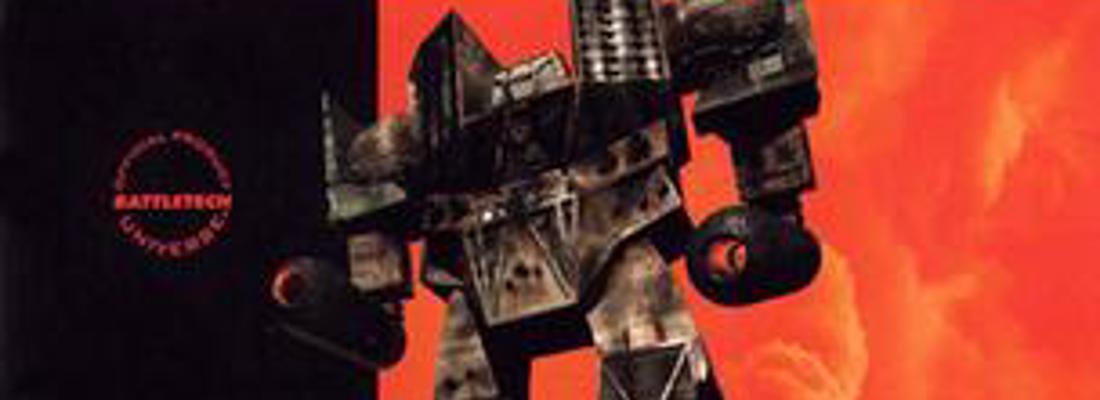9/27/19: I'm working on prototyping this game right now.
Players are couriers, tasked with moving resources from point to point in a near-future environment of scarcity. While in the world, a player is met with random encounters reminiscent of a typical RPG. Most encounters are opportunities to gather resources for the courier run. However, some of these encounters could include other players. The vehicle each player pilots is at risk of being hijacked while unattended. Players will have to customize the layout of their vehicles' cockpits to balance usability with defensibility. Other players may seek to avoid confrontation, and others may seek out the meek. Attention to audio cues and surroundings are critical to success. This game is also exploring the high-level concept of catharsis and pacing: one should always feel on the verge of escape, detection, or capturing their prey.
I've been thinking for a while about making a game experience that borrows mechanics from numerous other games and genres. I plan to use (at least) these mechanics:
- Vehicle operation as a puzzle (Starjacker, my creation)
- Player-made "level design" for self-defense (Castle Doctrine game)
- Alternating base-to-base travel (Jaws, NES)
- Random encounter during overworld map (JRPG)
- PvP "stealth" / detection during encounter (Metal Gear Solid)
- PvP running / chase during encounter (Track n Field, NES)
- Resource harvest minigames during encounter (Street Fighter II car fight bonus level, a bin full of LEGOs, gem appraisal IRL)
Vehicle operation as a puzzle
You know how in some movies, the heroes are running away from the bad guys? Then they all jump into a parked space ship, run up to the cockpit, and start purposefully and rapidly flicking switches to get the thing to start up and blast off? Well, I want to make a game about that.
This was my elevator pitch for a project that was greenlit in class (StarJacker!). The game explores the feasibility of whether operating switches in a cockpit is entertaining. With playtesting, we determined that indeed switches were satisfying. I made this pitch knowing it is only part of this larger game design. I figured it would be cool if everyone was running around trying to hijack eachother's space ships, and that they could configure the controls in ways that would be confusing to unfamiliar people -- ever grabbed the controller from someone who had the opposite look inversion settings than you? StarJacker didn't have enough time in the scope to explore PvP.
Thorough details about this mechanic design and stand-alone game are written on my developer's blog: https://decal-teamtbd.blogspot.com/
I was excited to see the presence of a similar game design appear on Steam recently: Nauticrawl. Another affirmation that these design ideas are worth exploring!
Player-made "level design" for self-defense
There is a game called Castle Doctrine, done by Jason Rohrer. Its premise is to defend your home and family from other players who are attempting to break in, harm your family, and steal your valuables. You have to plan the defense of your home by setting up traps, etc., and using an in-game editor. Being multiplayer, you or other players will be trying to constantly rob the other's home.
I had no idea about Jason's game until I described my game design to someone over some Kebabs! I find it very interesting
A universal defense against other players might be an upgradeable alarm computer puzzle for the vehicle. This alarm computer will go off and alert the owner unless the correct controller input series is performed. I loved old games that had cheat codes. Not just the Konami code, but the blood mode for Mortal Kombat, alternative costumes for Street Fighter 2 turbo on SNES, money/guns input on GTA, etc.
A player could require an X-digit length input sequence, where X is determined by an upgradeable "security" stat. There might be a simple feedback system for thieves (4/5 buttons correctly input) so they have a chance to potentially guess. However, the threat of the alarm should always be in the back of a thief's mind until it ultimately goes off (they fail to input the code or simply allow it to trigger). Players can recognize their own alarm sirens -- oh that's ME going off! -- and the engine could calculate a rough ETA to return to their ships.
Controller dexterity as a resource
I want to explore the complete and unique usage of the modern console controller layout, specifically with respect to the operation of the cockpit controls. Typically, the left stick is used to move; the right stick to look; the right trigger to fire; the A button to interact; etc. I do not want my players to be basically cycling through "UI" layer objects on the cockpit to select and "interact" with them. In all the movies, a pilot is operating the systems to the left with their left hand, and simultaneously adjusting a throttle with the right -- or something to this effect. They are not holding out their finger and pointing to a switch, toggling it, then sequentially moving around said finger to toggle another switch elsewhere. The pilot simply reaches for the appropriate control at the appropriate moment. This is maybe a Schopenhauer concept of Will -- we want to encourage the players' ability to control the in-cockpit buttons using the controller as an extension of their thinking.
How? I don't know yet, but playtesting should help. My intuition is something like this:
Cockpit controls are "labeled" with recognizable features. Buttons are shaped like an X or blue if they are on XBOX, for example. There are different regions within the cockpit that can be highlighted with the left and right sticks (focus for the left and right hands, respectively). The triggers map to left or right hand of the pilot; the bumpers twist and shift the entire player viewport. Thus, when in action, the player will do something like hit the LB to look to the left side panel, holding the left stick to the far left to focus on a nav computer box which is labeled X X X, she then holds the left trigger while pressing X three times to toggle the switches. Simultaneously, she has also used the right stick to focus on the upper right portion of the screen where the landing gear controls are labeled Y. After releasing the left trigger, she can pull the right trigger and hit Y once to release the landing gear
Alternating base-to-base travel
Back in my day, we had to cross shark-infested waters just to power up!
Jaws for the original NES had a tight game loop. You had to take your boat from one port across shallow and deep ocean waters to another port. After each journey, you could upgrade your weaponry by spending the collected conch shells. This forced the player to not just farm shells close to one port and to expose themselves to a potentially deadly random encounter -- maybe even with Jaws himself (herself?)
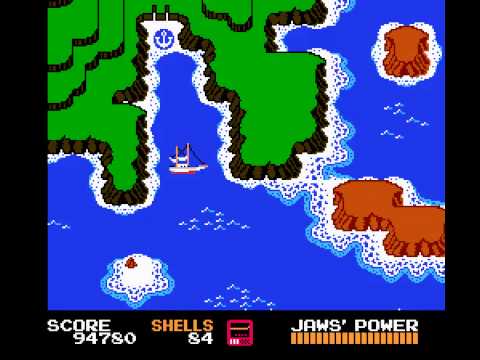
Random encounter during overworld map
The random encounter from JRPGs is a well-worn game mechanic. I acknowledge the debates about whether they are even necessary at all, or whether they fit in with modern game designs. For my game, they fit with the theme of anticipation. I know that a random encounter has a strong ability to interrupt a player's intention. If they are on their way through a dungeon to the boss, the last thing a player wants is a random encounter (so they run). Furthermore, I know everyone who has played an RPG, who has run out of tents, and who is almost to the town tile has at some point hit a random encounter and gotten worried about when was the last time they saved! They can really get the heart pounding because you might stand to lose something.
I want my random encounters to be mixed with other players.
If you hit a random encounter and do not know whether other players may be in that zone waiting for you, it opens up a whole sense of uncertainty. I think players make interesting decisions when they are uncertain about the risks involved with those decisions.
A random encounter in this game is not necessarily a turn-based combat scene. It may be a navigable 2D map with a few salvage sites for resources, but no other players. Or, it may be a hotly contested lobby with a bunch of other players, some of whom are looking for salvage and others who are pirates looking only for other players. My experience with open-world PvP in Everquest (1999 Vallon Zek), and Warcraft was not always Kill On Sight. I've read that some players in DayZ, PUBG, etc. actually try to communicate and coordinate with others. In my game, I want to try to make these random encounters with players (Contested Zones) not scripted death regions. I think it would be interesting if some people tried to ignore the other in an uneasy truce, and watch players police themselves, or form guild syndicates around common behaviors.
Exploring shaders as a scene transition:
https://www.youtube.com/watch?v=LnAoD7hgDxw
PvP "stealth" / detection during encounter
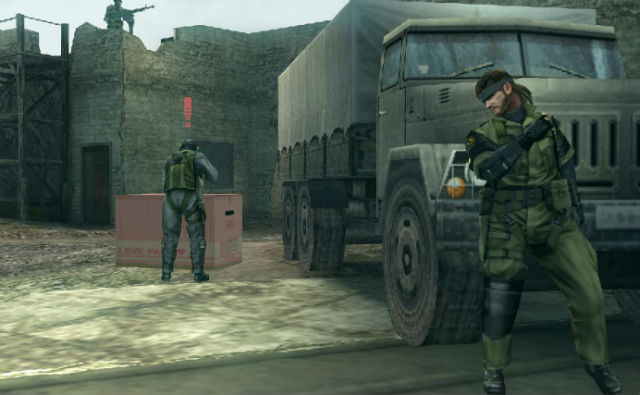
Player1 is distracted, their viewport is zoomed into a salvage minigame that they are trying to maximize. They didn't know there were other players in this encounter. Their salvage actions have created noise, which let Player2 know that there is another player in this encounter, AND that player is distracted. Player2 finds Player1 and interacts with them.
This type of interaction should result in either an immediate surrender / defeat from detected player, or it should spark a mini-game of sprinting away to escape. I am debating whether a combat mini-game should exist.
I figure the ALERT system should work to determine the amount of head-start that the detected player has. For example, if P1 leaves the salvage game and the other player is within a detection radius, a small QTE-type wheel appears and the player has time to react to P2 sneaking up. This would trigger the chase, but depending on input, determine the initial distance between the players.
I don't envision this in 3D, and I do not intend to have NPC AI. However, there should be other sources of random sound. Critters like raccoons, cats, and nature (wind) should create the exact type of noises that salvage events and other players create. This will maybe make a player fidget or jump, thinking that they are not alone!

PvP running / chase during encounter
When someone is detected, I imagined a type of chase minigame that would be a combination of two mechanics.
First, the frantic alternating button input of Track n Field for the "actual" running speed. Using a controller with left / right trigger axis, there should be a way to make it more than just button-mashing. In fact, I might be able to create a trip or stumble type mechanic if the player does not manage trigger input appropriately and just tries to automate with a tool, or just mash.
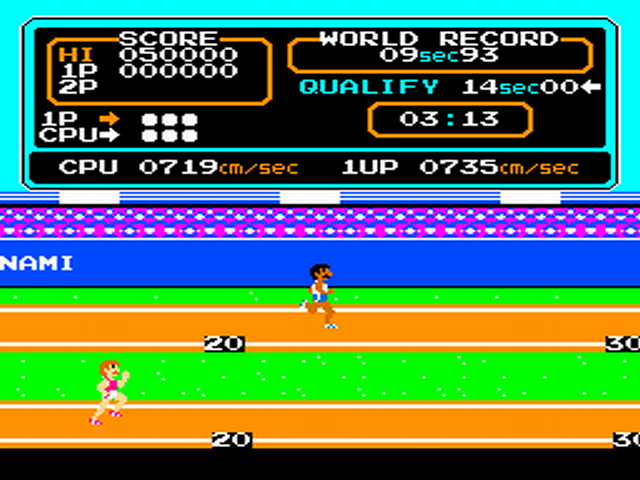
I don't see it as a side-scroller, but rather as a type of "chase cam." I also envision the ability for the player being pursued to shake the player who is chasing them. I see something like an option to go left or right down a path by doing directional input in a correct timed manner (QTE). The person behind would have to be close enough to see, and deft enough to push the same button or lose ground / sight. I'm reminded of the old Space Mountain minigame in Disney's Adventure in the Magic Kingdom cartridge for NES. This functionality has lots of room for expansion via updgrades to player run and turn speeds, how much of a "trail" they leave behind, the reach of the pursuer, etc.
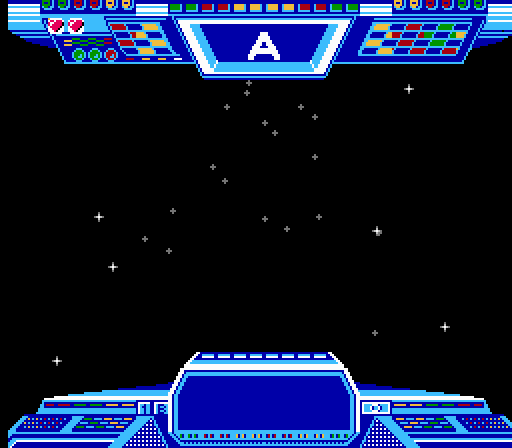
Resource harvest minigames during encounter
If the primary loop is a courier contract, then the resource gathering is what keeps that loop spinning.
Everything must cost resources in a future of scarcity, and this expenditure should matter. The Mad Max game for NES was so punishing that I was out of fuel and game over before I even learned what the goal of the game was... There should be enough resources that the players want to spend them and not hoard them, but also not so much that their gathering is irrelevant. This balance will require playtesting to pin down. I am wondering where a button press costs a resource of that button, and that salvage events reward the ability to push certain buttons. Like, you harvest "X" from certain derelict machines, and "RB" from others. So by all means hop into another player's mech to try to steal, but if you spend most of your resources trying to figure out the button combinations, it will cost you.
I also want to reduce a player's desire to want to avoid random encounters. If every encounter is a combination of risky and rewarding, that means some combinations will be full reward with no risk. But then, what would the reward actually look like? I can imagine certain types of upgrades in addition to the raw button grist. Things like schematics or PC gear (run fast shoes!)
I find the mechanic of "everything is breakable" in the LEGO franchise a very compelling baseline for resource acquisition. I just like the idea of destroying everything into tiny bits, the sound they make, etc. I dont' think it would necessarily fit into this game, but perhaps.
More likely, I had envisioned a few different types of minigames based on the object in the world that the player interacts with. Some objects can be harvested quickly but noisily. I pictured the dismantling of some (valuable) equipment almost like the "beating up" of the car in Street Fighter 2. It would be easy to get the bits out of the car, but you'd make quite a bit of racket doing so thus alerting other players to what you're doing.
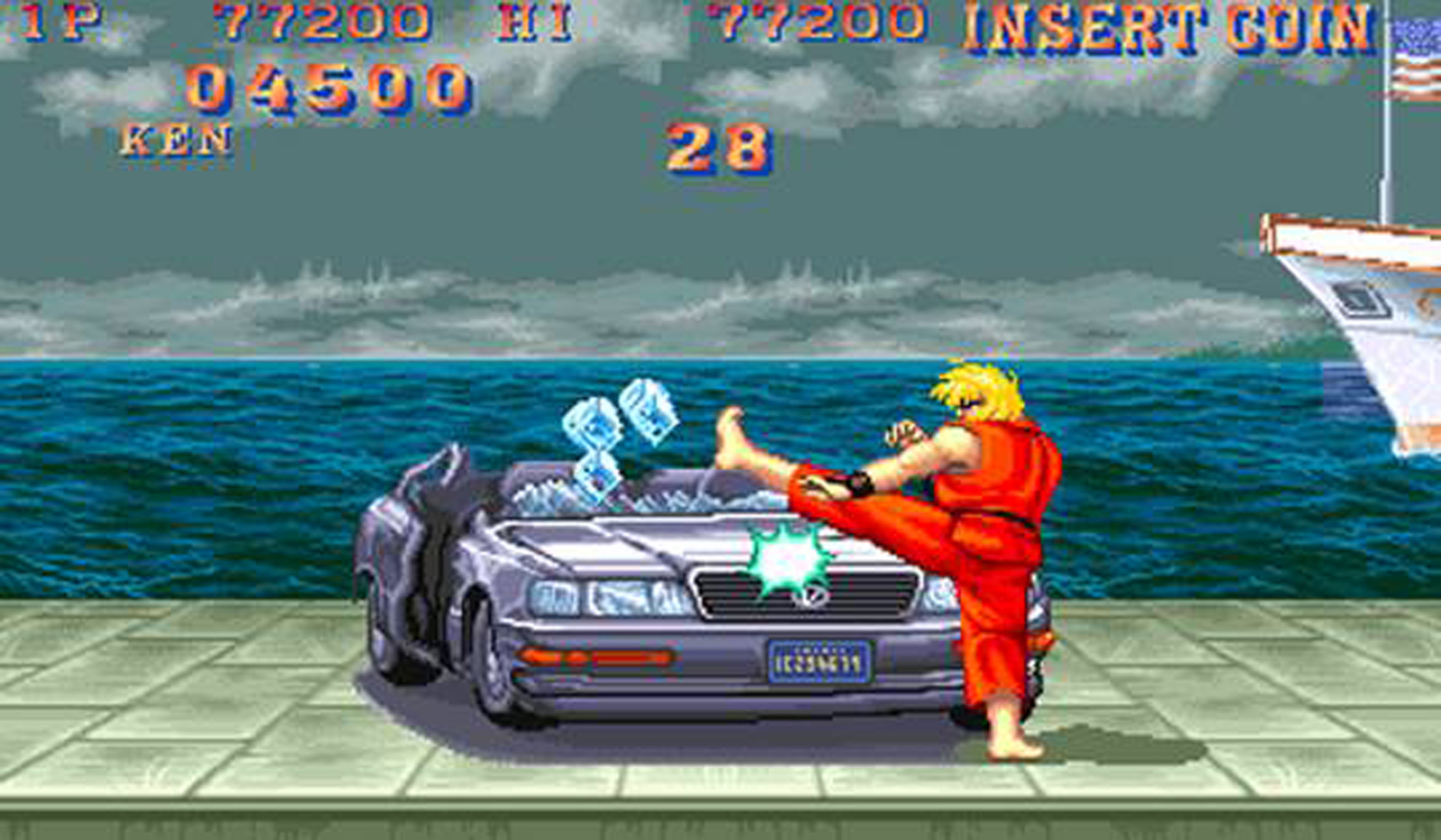
I also envisoned the idea of sifting through crap to get the nuggets of good stuff. I loved panning for gold, and also sifting through LEGOs in a huge bin. My design thinking about this is that the time spent sifting and searching would eventually increase the odds of spawning something more valuable. The intention is to get the player to stay "head down" in the minigame for as long as possible to encourage the other players to find them in that vulnerable state. While the noisy bit harvest game mentioned above may be the quickest way, these sifting methods may reduce noise, but also decrease ambient awareness. Likewise, the sifting methods may yield the more rare materials
At the pinnacle of salvage would be some type of high focus minigame. I was thinking about jewel appraisal, or almost like something that requires you to compare (like those comics where they appear identical, except that on the second one, the character is wearing a hat). This might be the type of thing where it's an obvious map with a distant focal point, so everyone in the encounter knows this type of salvage object exists in the center. Of course, they could spawn in to an empty map and have unfettered access to the good stuff! Likewise, it could be a deathmatch for the one single item. I'd love for people to see this map and be excited about the prospect of getting "the best" loot, but also to be excited about the competition

Revenge System
Players who successfully steal another player's vessel should be able to be found again for the purposes of revenge. Players who are the victims of theft might be able to tell the game engine that they are interested in revenge, which increases their likelihood of being placed in a random encounter with that thief.
Medals of honor
I like the idea of cosmetic layers that indicate to players what a particular vehicle has been through. I'm thinking a combination of peeling paint layers from each time the vehicle was stolen and returned, or something along the lines of WW2 fighter planes' fuselage decorations. Maybe a thief rolls up on a highly decorated vehicle and sees the large amount of war experience, then changes his mind because that player is both likely to have a good defense system, or a burning apetite for revenge.
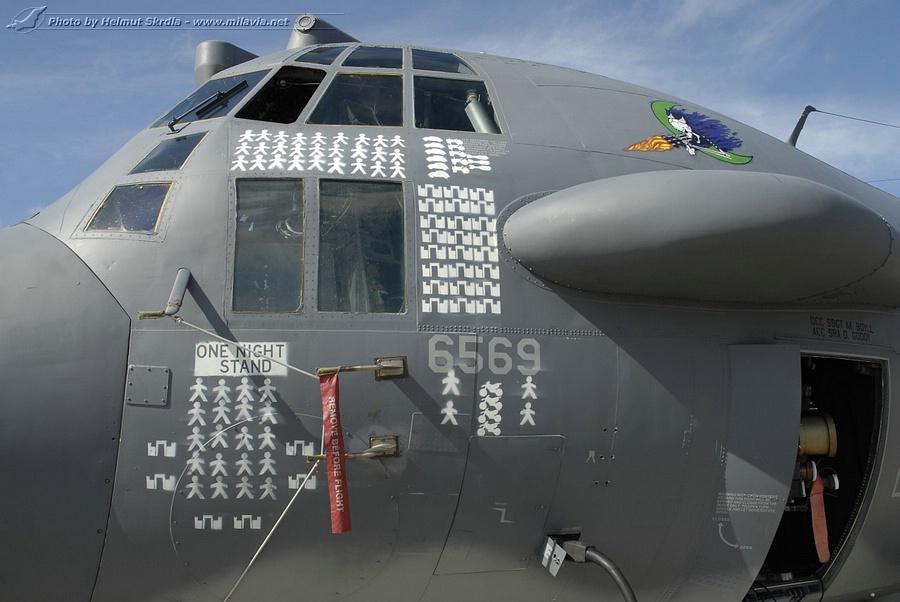
Draumaturgy. Exploring catharsis and pacing in games. https://www.gamasutra.com/blogs/EvanHill/20130816/198446/Tick_Tick_BOOM__Catharsis_and_Pacing_in_Games_The_New_Dramaturgy_Pt2.php
Original journal notes:
The concept is basic combat of machines. Defeating the enemy is destroying the machine or forcing the evacuation of the pilot
Uniqueness:
can "hijack" other machines
Can arrange cockpit as pilot during design of machine
Therefore, if hijacking other machine, player will have to operate the controls as laid out by the previous owner/designer. Should not be so quick to "pop in and drive" = some sense of "hurry up!" while rightful owner returns to collect abandoned machinery
Start up reactor
Start up weapons systems
Start up communications systems
…
Pilot
Similar but different ideas: representing machine wear. Noises from abused hardware. Pre-indication of failure from noises. Fluid loss / fluid maintenance
Should still be able to pilot mechs, even with foreign control schema
= hilarious walking backwards / shooting sideways = unpredictability ensures encounters are always worth engaging. Maybe your 40 ton small mech couldn't take on a 60 ton if they knew what they were doing, but if they are trying to fiddle with foreign controls, you end up with the advantage
Constant up-cycling. Jack a mech and attempt to salvage it by returning to your base. En route to base, you are threatened by other players. Arrive at your base, and you can keep the frame or strip the tech for use in upgrading your other frame.
3d cockpit, 2d world view? How to ensure combat is succinct yet affected by the control schema. Working with transferring shields via controls = Xwing versus TIE. Have to shift the power distribution from weapons to shields, etc. this all takes control work
Progress bars can "lie" so decisions that are based on timing can be done incorrectly as a result. Could have "faith" indicator (color; red = inaccurate reading), or similar design considerations for the mechanic (shape; circle indicators are accurate, but bars are not)
Actual combat should be precision-based by design -- makes the difficulty in controlling a foreign mech that much more relevant.
Preventing the lock down from that type of damage should prompt reactions in the cockpit. Overheating leg? Perform some "operation" on it using the unique control scheme. Figure it out!
different types of damage / armor? = heat shields protect against lasers, but nothing against projectile type weapons. Both? Heat shielding is a paint or coating, projectile defense is physical plating. Projectile damage can remove the paint, and unshielded physical plating will suffer permanently from heat damage… think of constant need for repairs. Frankenmachines
= all the more impressive when people maintain clean looking machines. Guild based? "HOA" type minimum requirements for appearances
Touch controls. Allow for multiple actions at once… flipping switches while holding buttons, cranking wheels, etc
